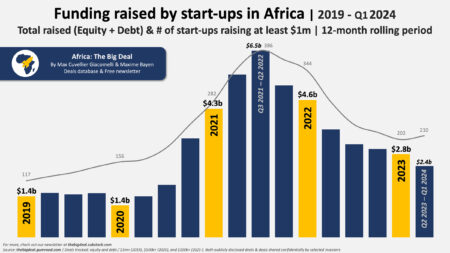- Society today does not offer children the much-needed knowledge about the proper usefulness or value of money
- Personal finance more often than not is not discussed at the family level
- Teaching about money at home could start from small steps such as introducing piggy banks
Money management skills do not come easy and growing up, sometimes I earned some money for doing household chores or as gifts.
When this happened, I would save the money to buy personal gifts for myself as well as for my siblings. Sometimes, mum borrowed this money to buy ‘some things’ we needed in the house and promised to return it. She rarely did.
I love my mother, don’t get me wrong. But at the time, children were not really allowed to have a lot of money – just enough to buy sweets and a few gift items, at least in my house.
One thing I remember clearly is that later on, my siblings did not squander their little savings on sweets. Instead, mum had learned about piggy banks and junior accounts that could be used to save extra money. This was one of the best money management skills pdfs could not offer.
My youngest sister, for example, went ahead to buy herself a phone with a top-up from mum after high school.
Today, my youngest brother has a junior account where he can save money if he so wishes—things I never got to enjoy back in the days. These are some of the money management tips for adults that they can borrow from children. But I appreciate the fact that I learned how to earn money through work. I learnt how to take photos of my friends in high school and process them for a few coins. This was long before money management apps became a thing.
Given the importance of financial skills in succeeding in life, it is surprising that society today does not offer children the much-needed knowledge about the proper usefulness or value of money.
While the primary responsibility of parents is to prepare children for a more independent life, it is advisable that they also give them financial lessons to navigate life. As in my first scenario, personal finance more often than not is not discussed at the family level.
With a society that is pushing young people to be financially independent, learning about personal finance has never been more important for children. Money management skills for students come in handy in such cases especially when the children are older.
Read: Keeping money in the bank won’t make you wealthy
Behaviour is forged by the age of nine
Several studies show that children take on their parents’ habits. This is what psychologists refer to as mirror neurons, whereby an individual (in this case a kid) performs the same action as a result of observing another (parents). As such, parents should endeavour to uphold good behaviours in an effort to instil the same in their children.
In a Brown University study, 50,000 families were analysed. The study concluded that most adult habits were forged by the age of nine. But parents don’t have to wait until age nine to teach their kids about money. Financial concepts should be embedded into the everyday life of a family in activities such as spending and saving.
In yet another study, it was found that social network has an effect on our behaviours, with a big part being played by parents.
In his book, Rich Habits, Tom Corley notes that parents and societies in general “are raising children who are financially illiterate and that leads to financial struggles later in life”. In his workshops, Corley has noted that while many students want to be successful and think they will be successful, neither their parents nor their teachers are teaching them how to.
“Parents who are successful mentors to their children, teach them specific daily habits. And these habits put them on autopilot for financial success as adults,” Corley adds in an article.
Using piggy banks
Teaching about money at home could start from small steps such as introducing piggy banks. The concept of piggy banks is to nudge children into learning and appreciating saving their own money. From this money management system, children can earn money by engaging in household chores, monthly allowances or through a job if they have one.
It is advisable for parents to show their kids the role money plays in their daily lives. Different labelled jars could be introduced to enable children to allocate a proportion of their money towards different causes: saving, spending, and donating. Investing in money management books could also give some other ideas which would help children with money management skills.

Even with piggy banks, parents should not be too strict. They should allow children the freedom to spend money and learn from their own mistakes. Money management skills will not be learned when the parents control every aspect of their children’s financials.
“First, they must save it, then spend it, then experience the euphoria that comes from buying the item they wanted, but also what it feels like to lose some money in the process. This will reinforce the idea that it must then be saved again,” observes clinical psychologist Dr. Elizabeth Kilbey in an article in The Guardian.
Read: Saving Discipline- What Saving Tips Are There?
The next thing is to involve them in planning and creating a budget, advises Dr.Kilbey. Small chores such as identifying what is needed in the house, making a list or ticking off items on a list during a shopping expedition, are all good ways to teach kids how to handle money.
Notably, in developed countries, children are more exposed to entrepreneurial ventures as well as access to monthly allowances. Additionally, some parents set up small businesses including lemonade or juice stands or encourage their children to go door-to-door selling cookies. These may not be necessarily what we should adopt in Kenya or elsewhere in Africa, but instilling creativity and entrepreneurial skills in the African context can nudge learners to think outside the box and prepare for the future.
Involving schools in money management skills
All said and done, schools should also step in to offer further support to prepare our young adults for life. Introducing entrepreneurship and financial management courses in the school curriculum could further challenge critical thinking and improve their research skills early on.
In efforts to support youth with important skills for success such as communication, entrepreneurship and self-esteem, Hand in Hand International is working with primary and secondary schools, universities and other social events in Kenya. Children are taught soft skills such as soap making, and baking among others. The children not only raise money from such activities but also transfer the skills to their family members, thus growing the family income.
Some areas that can be covered in high school starting from junior to senior year, according to Corley could include the following:
- How to Pay Bills and Balance a Cheque book.
- How to Save and Invest Your Savings.
- How Insurance Works – Auto Insurance, Home Owners Insurance, Health Insurance.
- Understanding Student Loans.
- Personal Income Tax Fundamentals.
In addition to instilling students with leadership skills, such programs should also inspire the youth to think beyond jobs. With far more students graduating than there are jobs, it is practical to provide an alternative through entrepreneurship and which is key to providing some money management skills.
The responsibility of educating our children to be financially conscious as well as creative should not be left either to parents or teachers alone. The two play vital roles in society, and as such should have the prerequisite tools and skills to support children at home and in school.
Read: Making your money matter in 2022 will pay back interest











